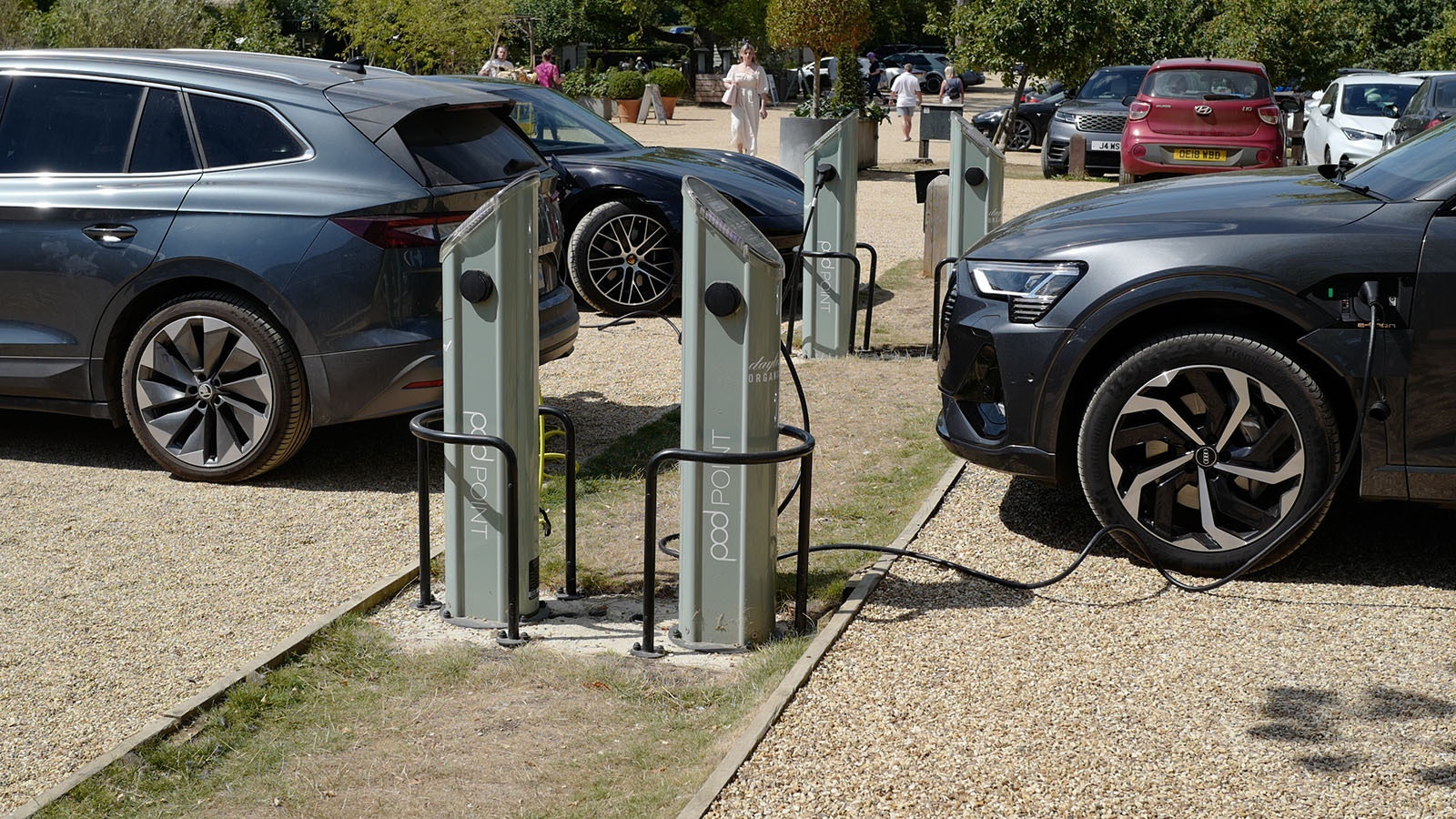A 30-minute drive east of Cody, Powell has no charging ports for electric vehicles. By the end of the year, it will likely have at least six ports at two charging stations.
Millions of federal dollars, as well as automobile dealership requirements, are driving a charging-station buildout across Wyoming.
In 2021, Wyoming had 500 electric vehicles registered in the state, according to the U.S. Department of Energy. That’s compared to more than 480,000 gas powered vehicles and more than 62,000 diesel vehicles.
The main interest in building out a network of charging stations is bringing more EV-driving tourists to Wyoming and satisfying the demands of car manufacturers.
Full Speed Ahead
Last month, the Powell City Council approved the sale of two parcels of land comprising about 1.5 acres to two businesses that want to install charging stations.
One parcel will be sold to Yellowstone Motors, a Toyota, Chevrolet, Buick and GMC dealership. The other will go to Yellowstone Electric Inc.
“Because of our agreement with the manufacturer, we have to put in publicly accessible charging stations,” Scott Larsen, marketing director for Yellowstone Motors, told Cowboy State Daily.
This month, General Motors announced it is expanding its charging network across the U.S. with 40,000 new charging stations.
Any dealers that want to sell the EVs are required to have the charging stations.
Buick plans to introduce only EVs from its 2024 model year. The company will continue to offer some legacy internal combustion models, but it plans to go fully electric by 2030.
Ford has a similar program for any of its dealerships that want to sell its EVs.
“Toyota is going full speed ahead with electrification, as well as General Motors,” Anthony Brownlee, Yellowstone Motors CEO, told the Powell City Council in November.
Tourism
Yellowstone Electric wants to build its own charging station, which will include a coffee hut or possibly food trucks.
Co-owner Zane Bennett said his research into EV drivers shows they plan their road trips around where charging stations are available.
“Maybe it will draw some traffic to come over the mountains from Sheridan or off the freeway or maybe down from Billings on their way to the park,” Bennett said, referring to Yellowstone National Park.
Bennett aims to build one or two level 3 charging stations, which charge EVs at the fastest rate, and two level 2 stations.
Federal Money
Bennett said wants to pursue funding through the National Electric Vehicle Infrastructure (NEVI) Program, which is administered by the Wyoming Department of Transportation.
The program provides $24 million over five years for construction, infrastructure, upgrades or operation of charging stations.
The final rules for the program haven’t been released, but the initial guidance requires stations along interstate corridors.
There are a couple other pots of money available for building out charging stations. The Infrastructure Investment and Jobs Act created a grants program that won’t be managed by federal or state agencies. The money goes directly to users.
The other pot is Volkswagen settlement money.
In 2015, Volkswagen admitted it had installed software on its diesel vehicles that was designed to cheat emissions tests to deceive state and federal regulators.
The feds launched a civil action against the company for violating the Clean Air Act. Wyoming received $1.2 million of the settlement.
WYDOT is recommending the money be used for off-corridor stations, just like Bennett is proposing to build, which will tie into the interstate charging stations supported by NEVI.
Delays And Requirements
There are several challenges that charging station developers will face. As with any federal program, there are myriad requirements the stations must meet, including compliance with EPA, American With Disabilities Act and “buy American” rules.
Since there aren’t a lot of U.S.-based manufacturers providing charging station components, “buy American” will increase lead times and drive up prices as the demand exceeds supply.
Dealerships, which can source their parts anywhere, face supply chain issues.
The Powell City Council asked Brownlee about the timeline for the project at the dealership.
Brownlee said he had already received parts for the charging station, but they were defective. The shipping time for replacements is uncertain.
“My goal is to have them sooner rather than later,” Brownlee said. “I just can’t give you an exact timeframe.”





